end of life care nursing definition
In the CMS Memo from 3-13-2020 facilities nationwide were advised they should restrict visitation from all visitors and non-essential health care personnel except in certain cases such as end-of-life Governor Andy Beshear has recommended that all. End-of-life care end līf kār Multidimensional and multidisciplinary physical emotional and spiritual care of the patient with terminal illness including support of family and caregivers.
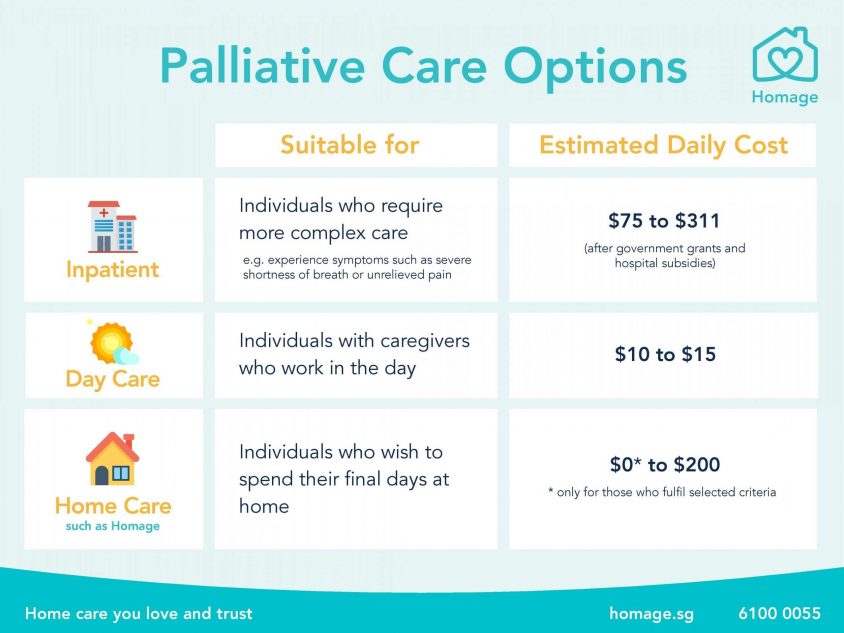
Palliative Care 101 A Complete Guide To End Of Life Care Homage
Using codes of ethics for nurses as a framework we attempt to identify people to whom nurses are responsible to provide end-of-life care and develop a definition of end-of-life care that is more inclusive and applicable to a broader range of people who would benefit from end-of-life care by nurses and other health-care providers.
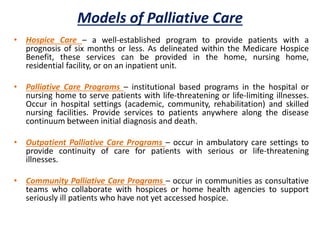
. Get the patient out of bed if possible. The phenomenon of end-of-life EOL decision-making is a lived experience by which individuals or families make decisions about care they will receive prior to death. Assess sleep pattern and recommend changes such as reducing distractions and noise Behavior and encourage the family to be understanding.
Advocacy is a common thread of quality end-of-life EOL nursing care encompassing pain and symptom management ethical decisionmaking competent culturally sensitive care and assistance through the death and dying process. Palliative care uses a team approach to support patients and their caregivers. With some serious illnesses prognosis is uncertain and it is unclear if the care provided is end-of-life or life sustaining.
Learn what to expect. End-of-life care generally refers to patient care before death either while undergoing curative treatment or after deciding to focus on comfort rather than cure. The goals of care in this phase focus on quality not life prolongation since in this situation life-prolonging measures invariably mean prolonging dying.
End of life care is support for people who are in the last months or years of their life. End-of-life Cardiac pacing noun The point at which a pacemaker signals need for replacement as its battery is nearing depletion Medtalk adjective Referring to a final periodhrs days wks months in a persons life in which it is medically obvious that death is imminent or a terminal moribund state cannot be prevented. PRIMARY PRACTICE SETTINGS S.
During the end of life the nurse should monitor the following. Defining end-of-life care from perspectives of nursing ethics - Shigeko Seiko Izumi Hiroko Nagae Chihoko Sakurai Emiko Imamura 2012. A person is approaching the end of life when they are likely to die within the next 12 months RCN 2015 Getting it right every time.
During this time people often require ongoing care which may include end of life care. This type of care is also called palliative care or comfort care and is an important part of medical care at the end of life. The term palliative care is often used interchangeably with end of life care.
This type of care does not happen only in the moments before breathing ceases and the heart stops beating. End of life care should help you to live as well as possible until you die and to die with dignity. Advocacy has 2 parts.
The definition of palliative care developed by american academy of hospice and palliative medicine aahpm explains the concept of palliative care the goal of palliative care is to prevent and relieve suffering and to support the best possible quality of life for patients and their families regardless of the stage of the disease or the need for. End-of-life care EoLC refers to health care for a person nearing the end of their life or in the advanced stage of a terminal illness. In medicine nursing and the allied health professions end-of-life care refers to health care not only of patients in the final hours or days of their lives but more broadly care of all those with a terminal illness or terminal condition that has become advanced progressive and incurable.
The people providing your care should ask you about your wishes and preferences and take these into account as they work with you to plan your care. The foundation of advocacy is the nurse-patient relationship. Primary care acute inpatient care case management and end-of-life care settings.
End-of-Life Care for People With Dementia Caring for a person with dementia at the end of life has special challenges. The term end of life usually refers to the last year of life although for some people this will be significantly shorter. Despite increasing interests and urgent needs for quality end-of-life care there is no exact definition of what is the interval referred to as end of life or what end-of-life care is.
However palliative care largely relates to symptom management rather. It is care that helps or soothes a person who is dying. It also includes support for their family or carers.
Medical Dictionary for the Health Professions and Nursing Farlex 2012 end-of-life care Supportive care for the dying. Educate the family on providing rest to the patient and limiting the amount of stress. Addressing suffering involves taking care of issues beyond physical symptoms.
The purpose of this article is to identify barriers and interventions that influence quality of life at the end of life. Making Decisions for Someone at the End of Life Being a health care proxy and making end-of-life care decisions for someone you love can be challenging. End-of-life care is the term used to describe the support and medical care given during the time surrounding death.
A postmodern philosophical approach suggests EOL decision-making is a varied contextual phenomenon that is highly influenced by subjectivity. Death and dying affects the whole family not just the individual who. It prevents and relieves suffering through the early identification correct assessment and treatment of pain and other problems whether physical psychosocial or spiritual.
This article reviews the history development and teaching methods of end-of-life care offering recommendations for future education. End-of-life care The health care that people receive in the last years months and weeks of their lives can help to minimise the distress and grief associated with death and dying for the individual and for their family friends and carers. A goal of end-of-life nursing education is to produce nurses who are comfortable with death and dying and who have had the opportunity to reflect on their thoughts and feelings about end-of-life care.
Generally speaking people who are dying need care in four areasphysical comfort mental and emotional needs spiritual issues and practical tasks. It helps them to live as well as possible until they die. Help them have good quality of life as theyre dying.

Improving Hospital Discharge For Patients At The End Of Life Nursing Times

4 End Of Life Care Hospice Care Nursing Care Plans Nurseslabs
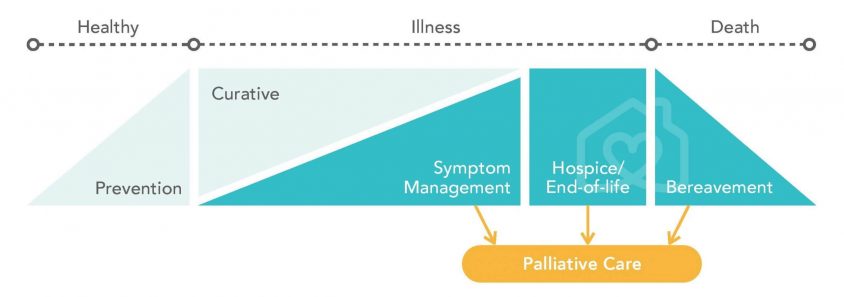
Palliative Care 101 A Complete Guide To End Of Life Care Homage

End Of Life Care Clinical Royal College Of Nursing
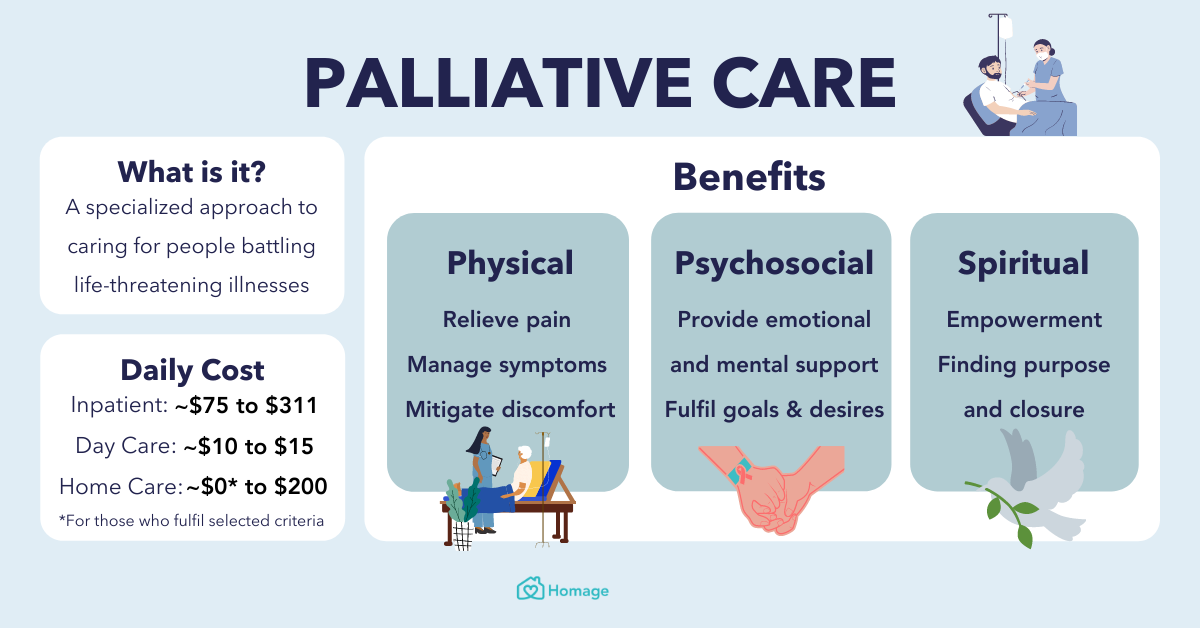
Palliative Care 101 A Complete Guide To End Of Life Care Homage

Pin On My Career Hospice Palliative Care Rn
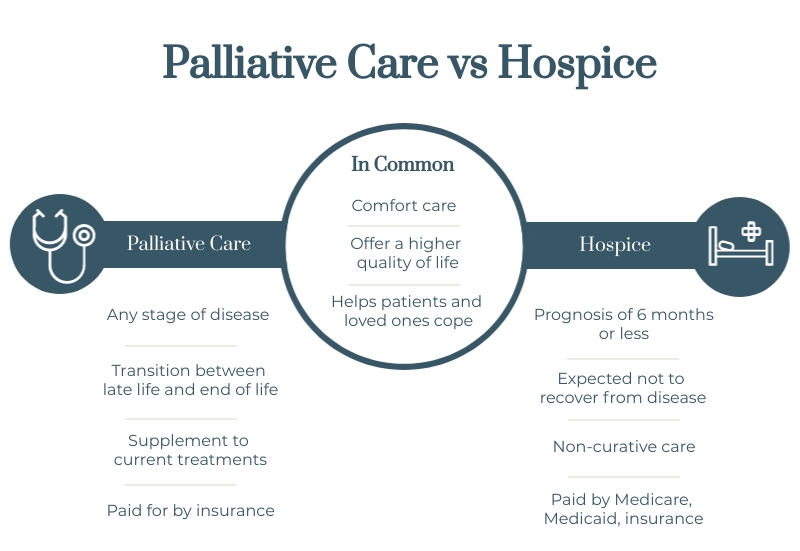
Palliative Care Vs Hospice What Is The Difference Everheart Hospice
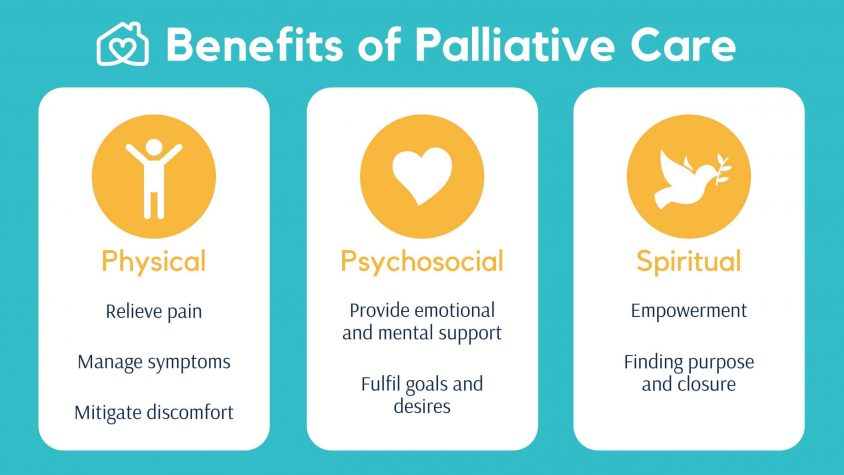
Palliative Care 101 A Complete Guide To End Of Life Care Homage

Top Ten Things About Palliative Care Poster By H34rthc4r3 In 2022 Palliative Care Palliative Care Quotes Nursing Notes

Not Restricted To The End Of Life And Can Be Used From The Initial Diagnoses Of An Incurable Illness Can B Palliative Care Quotes Palliative Care Holistic Care

End Of Life Care Clinical Royal College Of Nursing

Not Restricted To The End Of Life And Can Be Used From The Initial Diagnoses Of An Incurable Illness Can B Palliative Care Quotes Palliative Care Holistic Care





